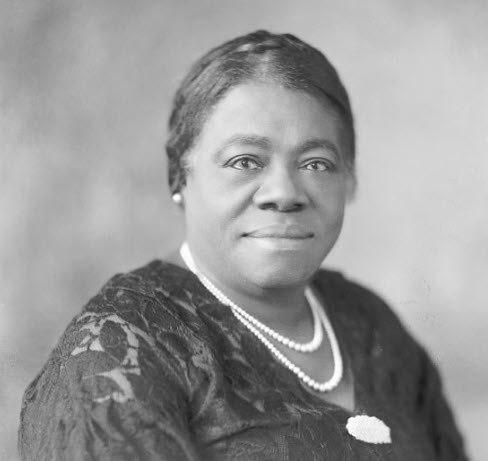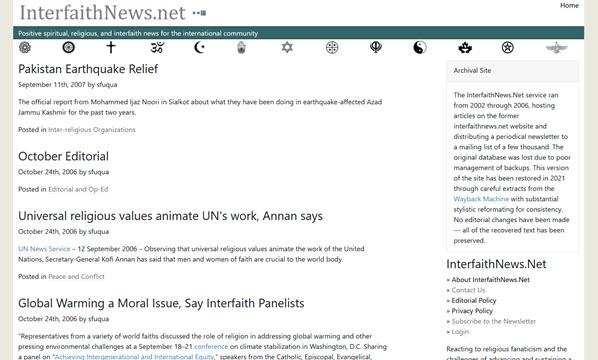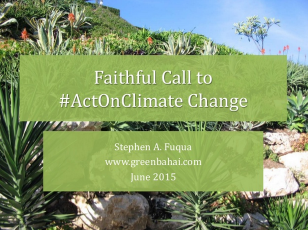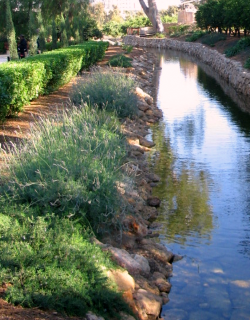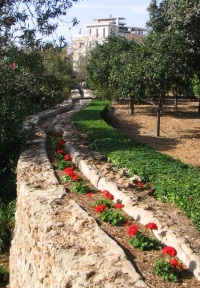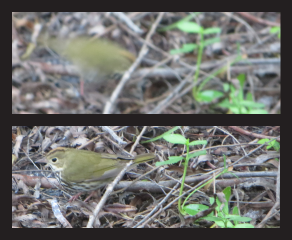A Conversation on Bahá'í Principles for Climate Action
Amongst its many admirable principles, where does one find environmental concerns in the Bahá'í Faith? So I wondered, early on my journey on this religious path. Recently, in honor of Faith Climate Action Week, several friends and I reflected on this question.
Our conversation opened with a brief meditation on this passage of praise for God, who is recognized through all the natural wonders:
“… whatever I behold I readily discover that it maketh Thee known unto me, and it remindeth me of Thy signs, and of Thy tokens, and of Thy testimonies. By Thy glory! Every time I lift up mine eyes unto Thy heaven, I call to mind Thy highness and Thy loftiness, and Thine incomparable glory and greatness; and every time I turn my gaze to Thine earth, I am made to recognize the evidences of Thy power and the tokens of Thy bounty. And when I behold the sea, I find that it speaketh to me of Thy majesty, and of the potency of Thy might, and of Thy sovereignty and Thy grandeur. And at whatever time I contemplate the mountains, I am led to discover the ensigns of Thy victory and the standards of Thine omnipotence.”
Bahá'u'lláh, Prayers and Meditations by Bahá’u’lláh, CLXXVI

Wildflowers on Naw Ruz at Enchanted Rock State Natural Area, by Stephen A. Fuqua (2024).
